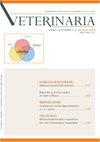通过课程的要求提高学生的成绩:乌拉圭共和国大学兽医学院生理学课程的案例研究
Q4 Veterinary
引用次数: 0
摘要
目的是比较2014年,2015年和2016年入学的学生在相应学期(兽医职业第三学期)学习生理学的表现。对于2015年的课程审批,学生只需要协助实践讲座(第一年和第二年);2016年进入评估阶段(第一年),但只提供援助(第二年);并于2017年通过测试进行评估(第一年和第二年)。认可该课程的学生比例从2015年到2016年有所下降(P <0.0001), 2017年有所增加,但未达到2016年的水平(P <0.0001)。2015年和2016年被免罪的学生比例相似,2017年有所增加(2017年与2015年:P <0.0008和P <0.0001, 2017年与2016年:P <0.0001和P = 0.03,分别为协助和批准课程的学生比例)。2017年和2016年12月前通过考试并获得资格的学生比例均高于2015年(比例P <0.0001,资格P <0.00001, P = 0.0014)。审批所需时间从2015年到2016年减少(P <0.01),与2017年相似。2017年和2016年的考试资格高于2015年,2017年和2016年没有差异。当学生开始第一年的课程后要求增加时,他们的表现会更好。本文章由计算机程序翻译,如有差异,请以英文原文为准。
Las exigencias para aprobar el curso mejoran el rendimiento de los estudiantes: estudio de caso del curso de Fisiología de la Facultad de Veterinaria, Universidad de la República, Uruguay
The aim was to compare the performance of the students admitted in 2014, 2015 and 2016 and studied Physiology in the corresponding semester (3rd semester of the Veterinary career). For approving the courses during 2015 the students only required to assist to the practical lectures (1st and 2nd year); in 2016 to go into evaluations (1st year) but only assistance (2nd year); and in 2017 evaluation by tests (1st and 2nd year). The proportion of students who approved the course decreased from 2015 to 2016 (P <0.0001) and increased in 2017 not achieving values form 2016 (P <0.0001). The proportion of students who exonerated was similar in 2015 and 2016, increased in 2017 (2017 vs 2015: P <0.0008 and P <0.0001, 2017 vs 2016: P <0.0001 and P = 0.03 for the proportions of those who assisted and those who approved the course respectively). The proportion of students who approved the exam by December and the qualification obtained was greater in 2017 and 2016 than in 2015 (P <0.0001 for the proportion, P <0.00001 and P = 0.0014 for the qualification). The time required to approve decreased from 2015 to 2016 (P <0.01), being similar in 2017. The exam qualification was greater in 2017 and 2016 than in 2015, without differences between 2017 and 2016. When requirements increased since the students began the first-year courses their performance was better.
求助全文
通过发布文献求助,成功后即可免费获取论文全文。
去求助
来源期刊

Veterinaria
农林科学-兽医学
CiteScore
0.10
自引率
0.00%
发文量
21
审稿时长
>12 weeks
期刊介绍:
VETERINARIA is the official scientific journal of the Italian Companion Animal Veterinary Association (SCIVAC) and is published bimonthly by Edizioni Veterinarie (E.V.). Its aim is to promote the spread and development of new ideas and techniques in the field of clinical and veterinary practices, with the ultimate goal of improving and promoting the continuing education of veterinary practicioners. VETERINARIA publishes literature reviews, original articles, diagnostic corners and clinical cases on different topics related to medicine and surgery of the dog, cat and of other companion animals, as well as short communications from congresses.
 求助内容:
求助内容: 应助结果提醒方式:
应助结果提醒方式:


